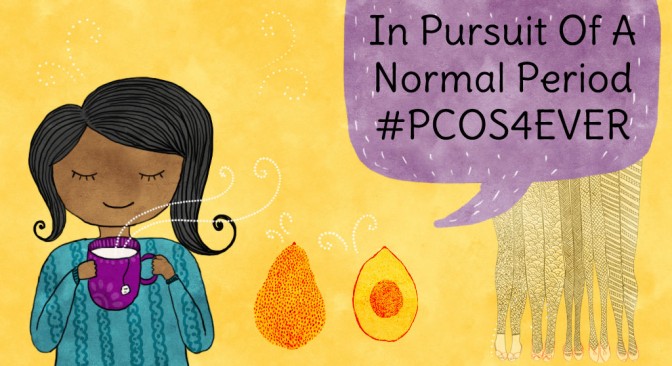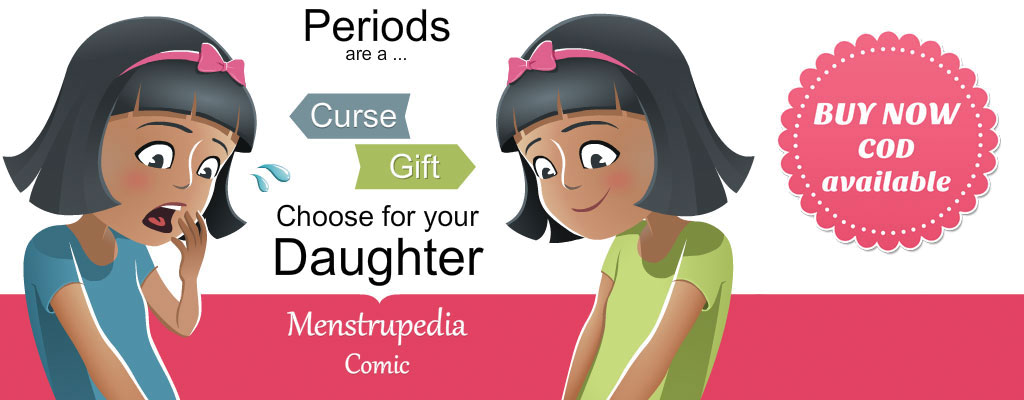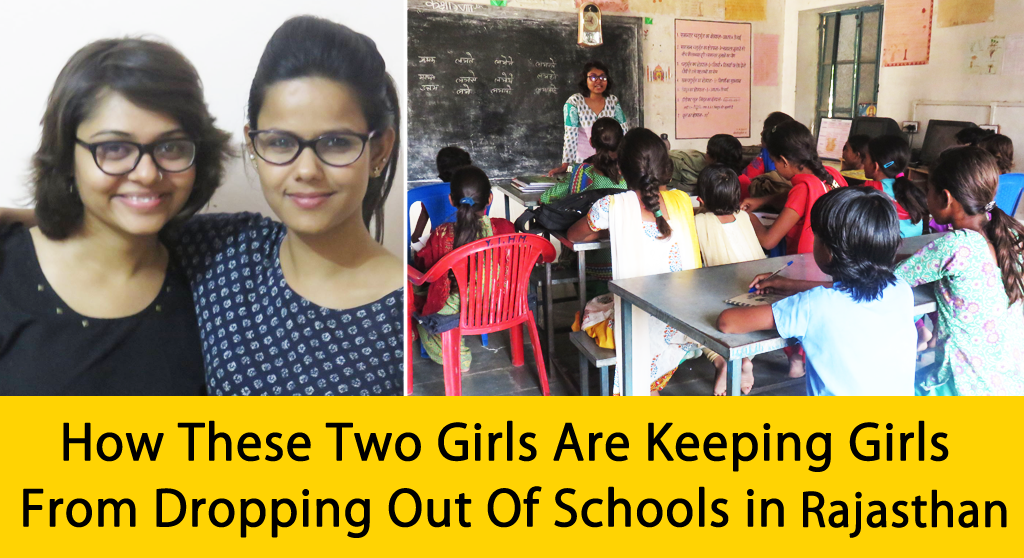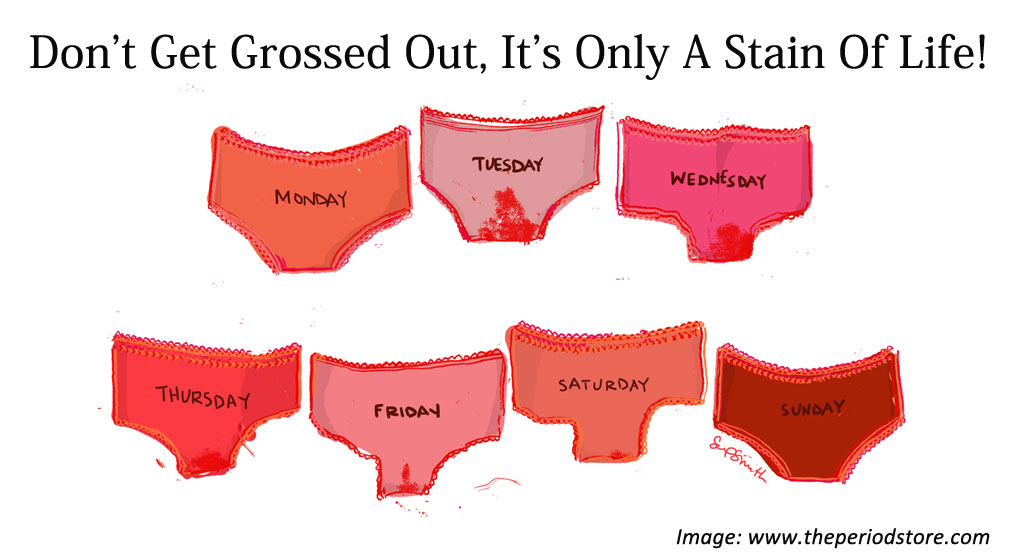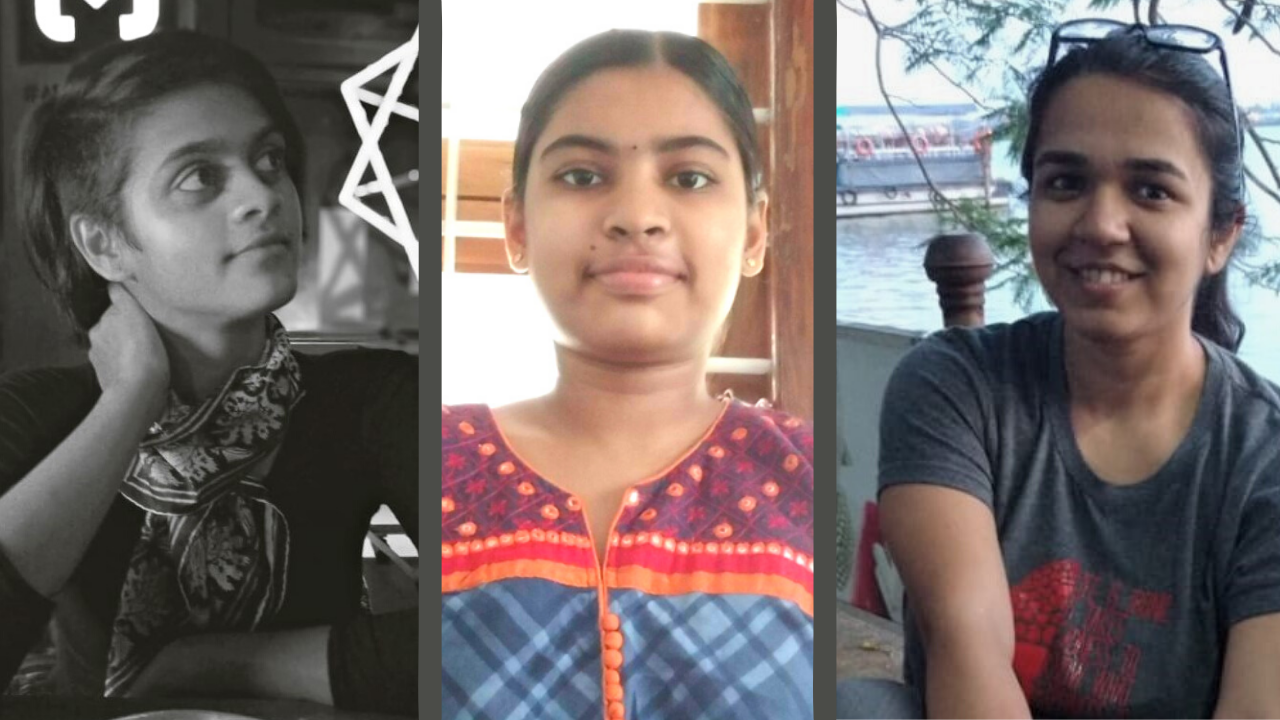“You know, most healthy girls get this disorder if they don’t lose weight easily,” chimed my high school best friend whose mother had recently informed her of some disorder related to irregular periods that bothered so many girls around us. Of course, at age fourteen, my biggest worry was of having to live with regular periods for at least another 30 years to come. The very thought of having to deal with fatigue, discomfort and jam stains mistaken for blood on a monthly basis depressed me at the time. So the possibility of not having periods for as long as six months was frankly quite wonderful. This was also the blissful time when I hadn’t yet bought into the myths of green tea and avocado – two things every woman on this planet must apparently have everyday no matter what she suffers from. At the same time, being in a family where positive body image is constantly promoted (along with exercise), I never felt the need to watch what I was eating or what my weight was. It wasn’t until I reached college at Bangalore that abdominal fat was discussed as a distinct category.
By then, I was sort of vaguely aware of what PCOS was through hostel discussions. Experiences ranged from someone who threw up every month during their period, to someone whose period hadn’t stopped for a very long time, to someone else who had started wearing full-sleeved clothes because their body hair was unmanageable. What united all of them was the knowledge of this one eternal truth: that they had PCOS and it was never going to go away. And of course, green tea. Every day.
Sure, I had missed a period or two here and there, and if you Googled hirsutism, I’d rank higher than average on the body hair scale. As a young person, I had smoked a cigarette or two and I couldn’t exercise regularly because where is the time for that and do you know how gyms are so expensive and exactly how much fat or smoking causes PCOS? Things hadn’t reached levels drastic enough until my postgraduate years in Delhi when [inlinetweet prefix=”” tweeter=”@menstrupedia ” suffix=””]I finally decided to Google PCOS.[/inlinetweet]
P.C.O.S. or Polycystic Ovary Syndrome, also referred to as P.C.O.D. (Polycystic Ovary Disorder) or the Stein-Leventhal Syndrome, is a condition commonly characterized by excess androgen activity and irregular ovulation because of multiple cysts in the ovaries. As Wikipedia (always) and doctors (very rarely) will tell you, having a poly-cystic ovary doesn’t always lead to PCOS, which means that if you don’t have PCOS and went for an ultrasound today there is a good chance you might see cysts or spots (though I have never actually read an ultrasound or X-ray successfully on my own) that are perfectly harmless. As per some studies available on the Internet that I could access,[inlinetweet prefix=”” tweeter=”@menstrupedia” suffix=””] 9.13% of all Indian adolescents have PCOS[/inlinetweet] , and not all of them are obese. In fact, in smaller regional studies, authors have concluded that most of their participants were lean but exhibited abdominal obesity.
This is the point where you look up and realize you are in the thick of whatever you can access in the form of science on PCOS, its causes, symptoms, your allies and fellow sufferers (also known as soul cysters) and eventually, a cure, only to realize there is no cure. I am not the doctor here but as any doctor or medical source would euphemistically conclude, PCOS cannot be cured because it has no singular cause but can certainly be “managed”! Thus began the journey to manage PCOS, a journey of disciplining the body through food, exercise and medication. Of course, as my mother would say, it’s a giant money-making scheme for gynaecologists to get lifelong clients.
Given that the symptoms mostly lead to embarrassment and shame (such as the relatively well-known shaming of Harnaam Kaur), most discussion is limited to women-only forums, and most treatment stays between you and your purse.[inlinetweet prefix=”” tweeter=”@menstrupedia” suffix=””] If you see someone with a few strands on their chin, you nod in silent empathy.[/inlinetweet] After my first visit to a renowned Delhi gynecologist, I was promptly put on steroidal pills with the disclaimer that this was a temporary solution to regulate menstruation. After ten days of giddiness and nausea, I gave up, only to start living “healthier”. In came an app to monitor the periods, next came WebMD counterparts to manage my diet. They say weight loss helps, so I stopped eating rice and carbs altogether after seven in the evening. For someone who swears by curd rice, lemon rice, tamarind rice and everything you can eat with rice, the guilt of indulging in one spoonful is immense. [inlinetweet prefix=”” tweeter=”@menstrupedia” suffix=””]You learn to feel your metabolism as if there were an actual clock attached to your body.[/inlinetweet] To compensate, I started sourcing green teas – Sencha, Pu-erh, flowering teas. I wouldn’t be surprised if several green tea-loving ladies were fellow soul cysters. Next came the oils and herbal cures. It’s not exactly unscientific. For instance, aloe vera, spearmint, and rhododendron, as plants growing in nature, do have medicinal and nutritional qualities. But whether they helped in managing my condition as well as they helped other women is something I could only know by trial and error. I once misread a tea packet and bought hibiscus tea. After a week of drinking it, Googling made me realize it promotes hair growth. The horror! The more motivated also resort to intestinal cleansing, Keto diet, yoga, PCOS cookbooks, oral contraceptives, and so on to coax a period every month.
Two years, a few laser treatments and a relatively ‘healthier’ lifestyle later, the ‘symptoms’ have still not been managed. But the satisfaction of having fought my body to the best of my abilities has set in. I am well aware as the monthly date nears that things might happen late or not at all. To which the doctor says, you need regular sleep and less stress. Basically, more arrows in the dark if you want to persist. When I see someone smoke, the PCOSmeter in my head lights up: it says they are an inch closer to unwanted hair; a common myth which I found isn’t entirely true. Smoking increases androgen levels but as this study shows it has no significant effect on PCOS, acne, or hirsutism! Among many other considerations that affect women’s relationship with what they consume, PCOS adds a whole new layer. Recently, I read somewhere that kale, a popular salad component, difficult to avoid if you live in the United States, is a major testosterone booster. A major setback in my daily PCOS battle. I drank an extra cup of green tea that day.
Also, within two years of actively fighting the condition, it frustrated me that barely one film existed on YouTube telling people what this was. And the film was obviously not from India. Most of the diet advice I had been getting was from Centre for Young Women’s Health, PCOS Diet Support, and other global websites. It felt very lonely. I kept tweeting [posting on Twitter], telling friends we should do something. Eventually I found a Facebook group called PCOS India with 128 members, though most of them are women trying to conceive. I started my own group and added my 15 friends (or cysters). Given how intimate and pervasive the condition is, we didn’t get around to talking much except exchanging contacts of helpful doctors. Time and again I would go back to forums like Soul Cysters to read the weight-, hair- and diet-related struggles of women who had it worse than me. Comforting and disheartening both at once. I haven’t entirely given up. I’m hoping this article reaches out to any of you looking to discuss, vent and cope with something that defines our bodies – as less fertile, probably pimpled, racing against dates, yet in many ways very much feminine.
If you identify as male and are reading this,[inlinetweet prefix=”” tweeter=”@menstrupedia” suffix=””] take a chance and ask your female friend if she has PCOS.[/inlinetweet]There is a good chance she might say yes. On further prodding, she will tell you her plan and show you her apps. She might tell you why she loves all berries not only because they taste good. For someone who is well aware of beauty and medical regimes that seek to tame women’s bodies into ‘normalcy’ on a daily basis, dealing with PCOS can be a tough call. Given that it affects extremely intimate experiences closely linked to how we, as women, imagine ourselves and our ideal bodies (as fertile, hairless, spotless, and so on), the daily fight against PCOS becomes a reminder of how looking and feeling like a ‘normal woman’ who can reproduce and has no ‘abnormal’ hair growth needs constant management and preservation through a series of self-care gestures.
This article was originally published as “Of green tea, weight loss and living as #PCOS4EVER” in the October edition of In Plainspeak, an e-magazine on issues of sexual and reproductive health in the Global South.
Noopur Raval is a PhD student at the University of California, Irvine. She is passionate about technology, labour, gender and sexuality. When she is not researching sociotechnical phenomena, she loves eating, traveling and writing. She tweets @tetisheri.


